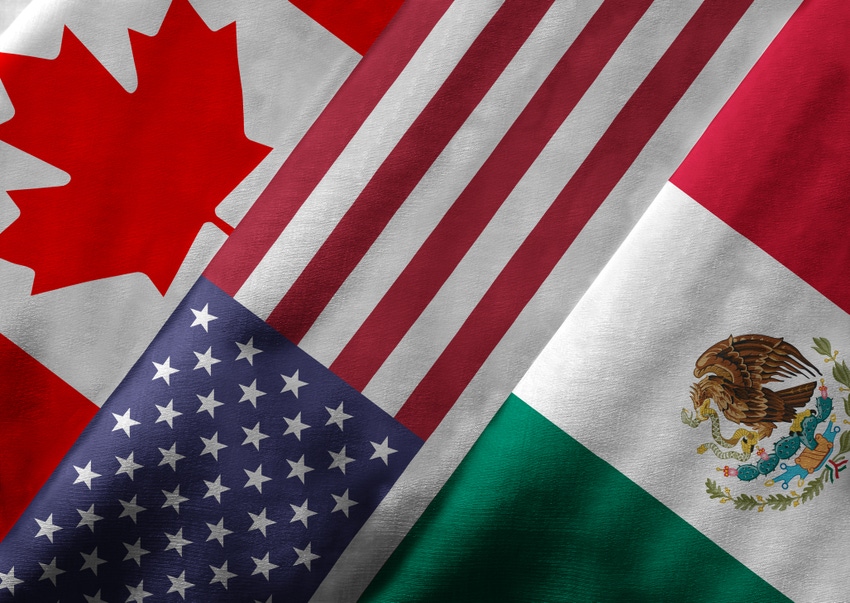
As it has with the China trade dispute, agriculture could bear a significant share of the fallout over President Donald Trump’s newly imposed tariffs on steel and aluminum from Canada, Mexico and the European Union.
The U.S’ two neighbors issued lists of potential tariff targets on May 31 that included such farm-produced goods as grapes, blueberries, apples, beef and pork – many of the same goods that took a hit when China announced counter-measures to Trump’s tariffs in April.
But while China is an emerging market for U.S. agricultural goods, Canada and Mexico are in many cases top trading partners. In 2017, Mexico was the largest volume market for U.S. pork exports at more than 800,000 metric tons, valued at $1.51 billion, according to the U.S. Meat Export Federation.
“It will be very unfortunate if U.S. pork exports to Mexico, which deliver tremendous benefits to both the U.S. supply chain and to Mexican consumers, importers, processors, retailers and restaurants, no longer enjoy duty-free access to this critical market,” USMEF president and chief executive officer Dan Halstrom said in a statement.
“It is especially frustrating to see U.S. pork caught up in a dispute that has nothing whatsoever to do with pork trade,” he says. “If these tariffs are implemented, they will negatively impact millions of consumers and thousands of people in the meat and livestock industries on both sides of the border.”
New tariffs imposed
Trump imposed the new tariffs beginning June 1 as part of an ongoing dispute with China, which the administration believes is using the U.S.’ two neighbors and the European Union to get around duties on Chinese steel and aluminum. The president believes the imports are undercutting U.S. manufacturers.
China responded by targeting commodities important to states Trump carried in the 2016 election and those that could be key to determining which party controls Congress after this year’s midterms. An April report by the group Farmers for Free Trade asserted that California commodities will be particularly hard-hit by the roughly $500 million in Chinese tariffs imposed on American agricultural goods.
For its part, Mexico asserts that steel and aluminum are inputs that contribute to the competitiveness of several strategic and highly integrated sectors in North America. Faced with the U.S. tariffs, Mexico will impose “equivalent measures” to various products, including pork legs and shoulders, sausages and food preparations, apples, grapes, blueberries and various cheeses, according to a government news release.
Canada is considering 10 percent tariffs beginning July 1 on a variety of U.S. agricultural goods, including prepared meals with beef, chicken or other meats; berry and nut purees and pastes; orange juice; tomato sauce; and wood products such as plywood and paper, according to its government’s news release.
Farm interests have been on a veritable roller-coaster of emotions lately, feeling relief in mid-May over a trade “truce” that apparently included a deal to send more agricultural goods to China, only to see Trump move ahead this week with plans to impose tariffs on $50 billion of Chinese imports and curb investment in sensitive technology. The latest move was to ratchet up pressure on Beijing days before the next round of trade negotiations, Bloomberg News reported.
About the Author(s)
You May Also Like






